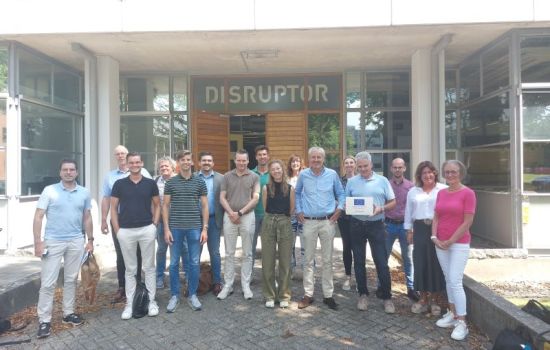VBoptimum and the GENIUS Project: Smart Energy Solutions for the TU/e Campus
Smart Control to Tackle Grid Congestion
The energy transition requires more than just sustainable energy generation—it demands intelligent control of installations and infrastructure. Grid congestion is becoming an increasingly pressing issue. Through the GENIUS project, VBoptimum is working alongside leading partners to develop innovative solutions that directly address this challenge. On the campus of Eindhoven University of Technology (TU/e), new technologies are being developed and tested that can be scaled and applied to business parks and utility buildings across the Netherlands.

The GENIUS Project: A Scalable Testing Ground
GENIUS stands for Grid Efficiency Network Integration for Universal Sustainability. The project is supported by the European Regional Development Fund (ERDF) through the OPZuid program. Partners such as TU/e, Fudura, Enpuls, TNO, VDL, eNexus, Technolution, Simpel Energy, and VBoptimum are pooling their knowledge and technology to combat grid congestion. The goal is to develop tangible, scalable solutions that can be implemented in real-world settings.
On the TU/e campus, various measures have already been taken: a 3.4 MWh battery system has been installed, smart EV charging infrastructure has been added, and a real-time Energy Management System (EMS) manages and coordinates energy flows from sources such as PV systems, charging stations, thermal energy storage, and the physical battery.
VBoptimum’s Contribution: Intelligent Building-Based Control
Within the GENIUS project, VBoptimum delivers a Digital Twin and predictive control system for the iconic Atlas building—one of the most sustainable educational buildings in Europe. The Digital Twin is linked to the building management system (BMS) and allows the HVAC systems to be controlled not only for efficiency and comfort but also in response to grid load conditions.
One of the most powerful applications is the dynamic control of the heat pump based on grid capacity. By operating the heat pump when electricity is abundant—such as during sunny or windy conditions—and scaling back its operation during times of grid stress, the building effectively acts as a thermal battery. Heat is stored in the building’s thermal mass, such as floors, walls, and water buffers.
This allows load shifting to occur using the building’s inherent thermal capacity. As a result, the need for a large physical battery is reduced, and the building becomes an active player in solving grid congestion. This approach increases installation flexibility and contributes to a more stable energy system.
Working Together Toward a Scalable Future
VBoptimum brings its HVAC and controls expertise into this project, combining it with advanced technology like ecoBuilding. Our contribution demonstrates that smart software and predictive algorithms can not only save energy, but also play a strategic role in balancing electricity grids—without requiring major hardware investments.
The solutions we are now testing and deploying on the TU/e campus offer valuable insights for thousands of other locations across the Netherlands facing similar grid limitations. By unlocking the flexibility hidden in buildings, we can create space within the existing electrical infrastructure.
The Genius project is a collaboration between TU/e, VBoptimum, Simpl Energy, Fudura, and other partners. More information on this project can be found on the Stimulus website, the executing subsidy provider on behalf of OPZuid and the European Union: TU/e campus tackles grid congestion with European funding.
VBoptimum specializes in the intelligent control of HVAC systems based on predictive algorithms. We use a Digital Twin and Priva ecoBuilding algorithms, branding this as VBoptimize, powered by ecoBuilding.



